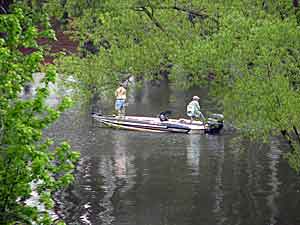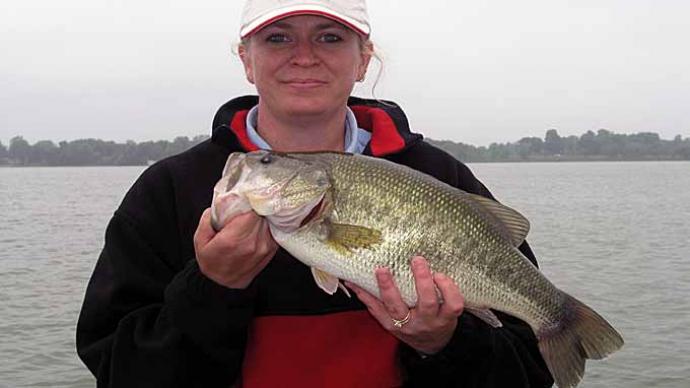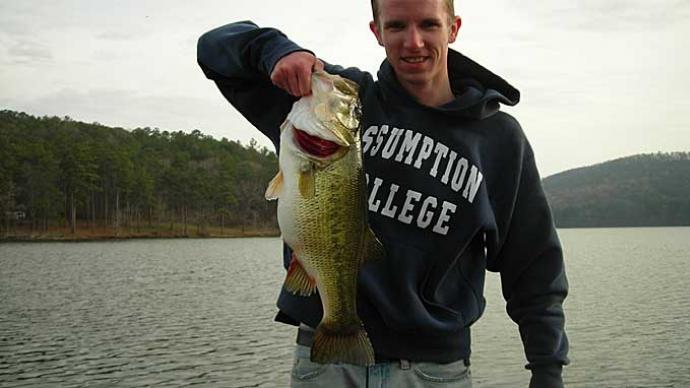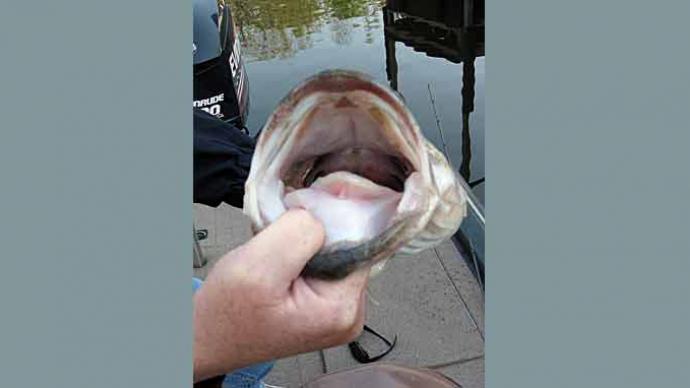
Spring will present a different type of strategy for your tournament fishing more than any other time of the year. At no other time of the year will you face such a variety of conditions. The weather will decide where you fish and how you fish your tournament. The weather that occurs before your tournament can make or break your winning streak.
The weather here in Texas can be 75 degrees or you might wake up and be facing a snowstorm. This can all occur within a span of three days. It can even on occasion happen overnight. Rapidly changing and unpredictable weather is something this state has become famous for.
The strategy I will study when approaching tournaments is to look at trends. By that I mean weather trends. These can, in turn, affect water conditions.
If the weather has been on a warming trend for several days prior to your tournament, you have one scenario. If it has been below or at freezing for those same days you'll have different problems altogether.
Study the aspects of the weather that has occurred in the area of the lake where you will be fishing. If it has been sunny or cloudy, those factors are important. How much rain has the area received? All of these things must be taken into consideration.
If it has been warm, but cloudy the water temperature won't be as good under the same conditions with sunny skies.
Note whether the nights have been warm or cold. This will play a big role in your strategy. Warm nights and sunny days will make the fish more active and vice versa. Following cold nights and overcast, cold days the bass will only become active later in the day.
One weather condition that will have the biggest impact on your fishing is when an area receives a warm rain. It's been my experience that when a lake is cold and receives some warm rain, the temperature can jump dramatically. By the same token, a cold rain in the area the day before you fish can drastically change. This usually means lessening of your over all success.
Another factor you must ascertain is lake level. Find out if the lake is rising or falling. Many lakes and reservoirs have some type of governing agency that keeps track of water level.
You will have to realize that if the water level is falling, regardless of the temperature of the water, bass will hesitate to make a move to the shallows. Following a few warming or sunny days, this will change and the fish will move. It's always good to know if the lake is clear, muddy, or somewhere in between. Even if the lake has been muddy for quite a while, then you will know that some of the creeks and pockets might still be clear.
I have found many of the fish I've weighed in at tournaments by flying over the lake during practice prior to the event. From above you can easily see moss beds, clear coves, and other areas you might not find in three days of pre-fishing. For larger events with heavier purses this is a feasible option.
For a local or club event flying over the lake isn't practical, so call a local tackle shop or marina. The business people in the area can sometimes tell you if the lake has been muddy or clear, warm or cold. You can also call a local angler, a friend perhaps, to find out the general pattern that has been working on the lake. You don't have to ask for particular hot spots. All you need are weather trends and water conditions.
As you can see there is homework involved in making your fishing trip successful, but you can get the jump on the competition at your next tournament without even wetting a hook.
If you don't study the trends you can watch the weigh-in line to see who did well. You can bet that they did.
Bill Wilcox is sponsored by Ranger Boats, Yamaha Outboards, MCMC, BG Products, Pro Rule, Johnson Fiberglass, Brown's Automotive, Continental Batteries, Kistler Rods, Swamp Hog Lures, Strike King Lures, and Fun-n-Sun Sports Center.




